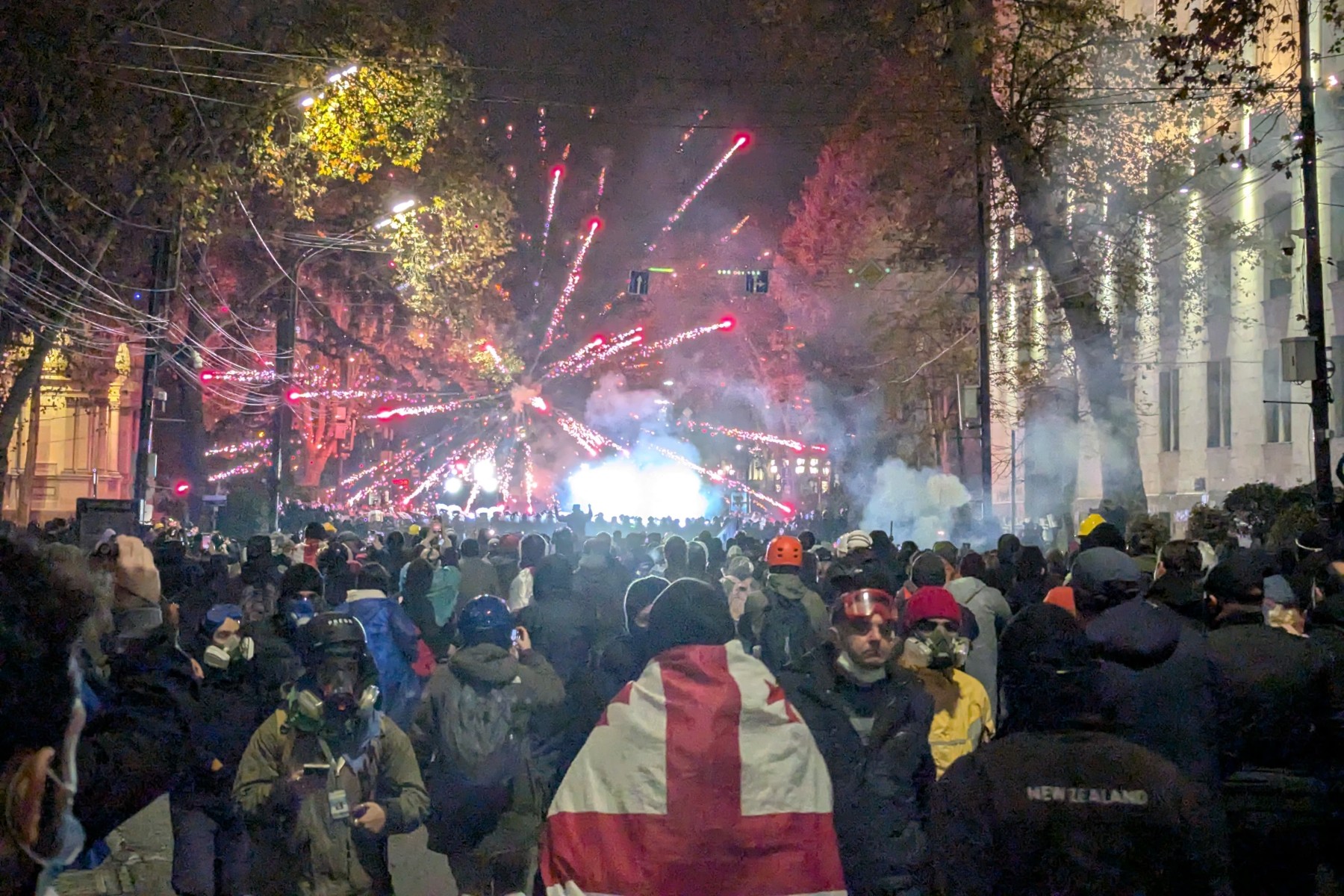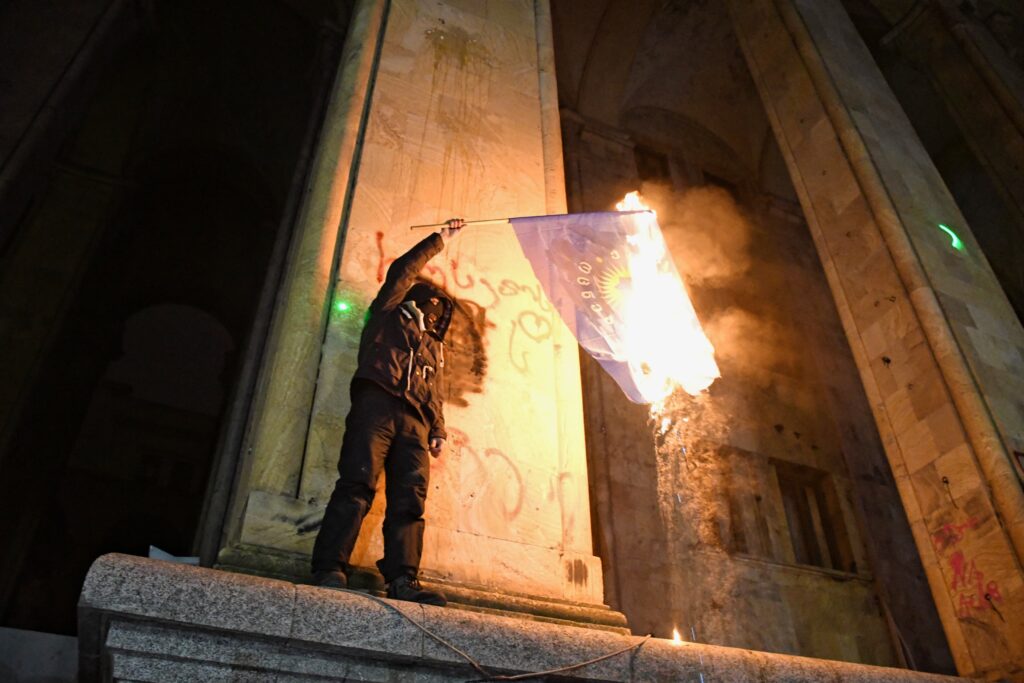At least four Georgian ambassadors have resigned in protest as police clashed with protesters for a third night on Saturday following the government’s U-turn on EU integration.
The country’s ambassador to Bulgaria stepped down on Friday and on Saturday the ambassadors to the Netherlands, Italy, and Lithuania followed suit. There have been multiple, unconfirmed reports in local media that the ambassador to the US, former foreign minister David Zalkaliani, has also resigned, along with Deputy Foreign Minister Temur Janjalia.
On Saturday, Georgian President Salome Zourabichvili vowed to stay on as president after her term expires in December, stating that an illegitimate parliament cannot appoint her successor.
Media and observer groups documented widespread voter fraud and breaches of voter secrecy during 26 October’s parliamentary elections, during which the ruling Georgian Dream party secured a fourth term in power.
‘I will remain as your president, there is no legitimate parliament, therefore an illegitimate parliament cannot elect the president’, she said. ‘Therefore, there will be no inauguration and my mandate continues until there is a legitimately elected parliament, which will legitimately elect whoever will succeed me.’
The four major opposition groups also released a joint statement on Saturday, repeating calls for new elections under international administration.
As Western condemnation of the Georgian government continued to pour in on Saturday, the US State Department announced that they were suspending their strategic partnership with Georgia.
‘Georgian Dream’s various anti-democratic actions have violated the core tenets of our US–Georgia Strategic Partnership, which was based on shared values and commitments to democracy, rule of law, civil society, respect for human rights and fundamental freedoms, and anti-corruption efforts. As a result, the United States has suspended this mechanism’, they said in a statement.
Protests intensified on Saturday throughout the country, including in Batumi, Kutaisi, Gori, Rustavi, Khashuri, Poti, and Zugdidi.
In Tbilisi, around 100,000 demonstrated in front of the parliament building. Some broke the windows of the building and fired fireworks inside, briefly starting a fire. After riot police moved in to disperse the demonstration, protesters again battled with riot police into the earlier hours of the morning. Police deployed tear gas and water cannons and made a number of arrests.

Saturday also saw mounting condemnation of the government from the businesses sector. This included statements from the country’s two largest banks, TBC and Bank of Georgia. Curatio, a major clinic, offered free medical treatment to anyone injured during the protests.
There were also more messages of support for the protesters from prominent sportspeople, including popular footballer Kvicha Kvaratskhelia.
Both local and international criticism of the police crackdown on protesters has continued.
The UN special rapporteur on freedom of assembly, Gina Romero, criticised the police response the previous nights, including the firing of tear gas canisters directly at individuals and the addition of chemical irritants to water cannons.
The OSCE’s Office for Democratic Institutions and Human Rights also condemned the police actions, calling them ‘a serious breach of the right to freedom of peaceful assembly’.
Government officials continued to blame protesters and the opposition for the violence.
Prime Minister Irakli Kobakhidze went so far as to suggest that European politicians were responsible.
‘For three years now, certain European politicians and bureaucrats, who have failed to achieve the Ukrainisation of Georgia, have been constantly trying to use the topics of candidate status and the opening of negotiations to weaken the country, incite so-called polarisation in Georgia, and artificially divide the society’, he said.
He said these European politicians and bureaucrats, as well as ‘local agents’, the ‘fifth column’, which is represented by ‘four political parties’, bear the main responsibility for the protests.
While sporadic protests have continued since October’s contested elections, the latest wave of unrest came after Kobakhidze’s shock announcement on Thursday that the country would halt its EU accession process ‘until 2028’.




 1 December 2024
1 December 2024



